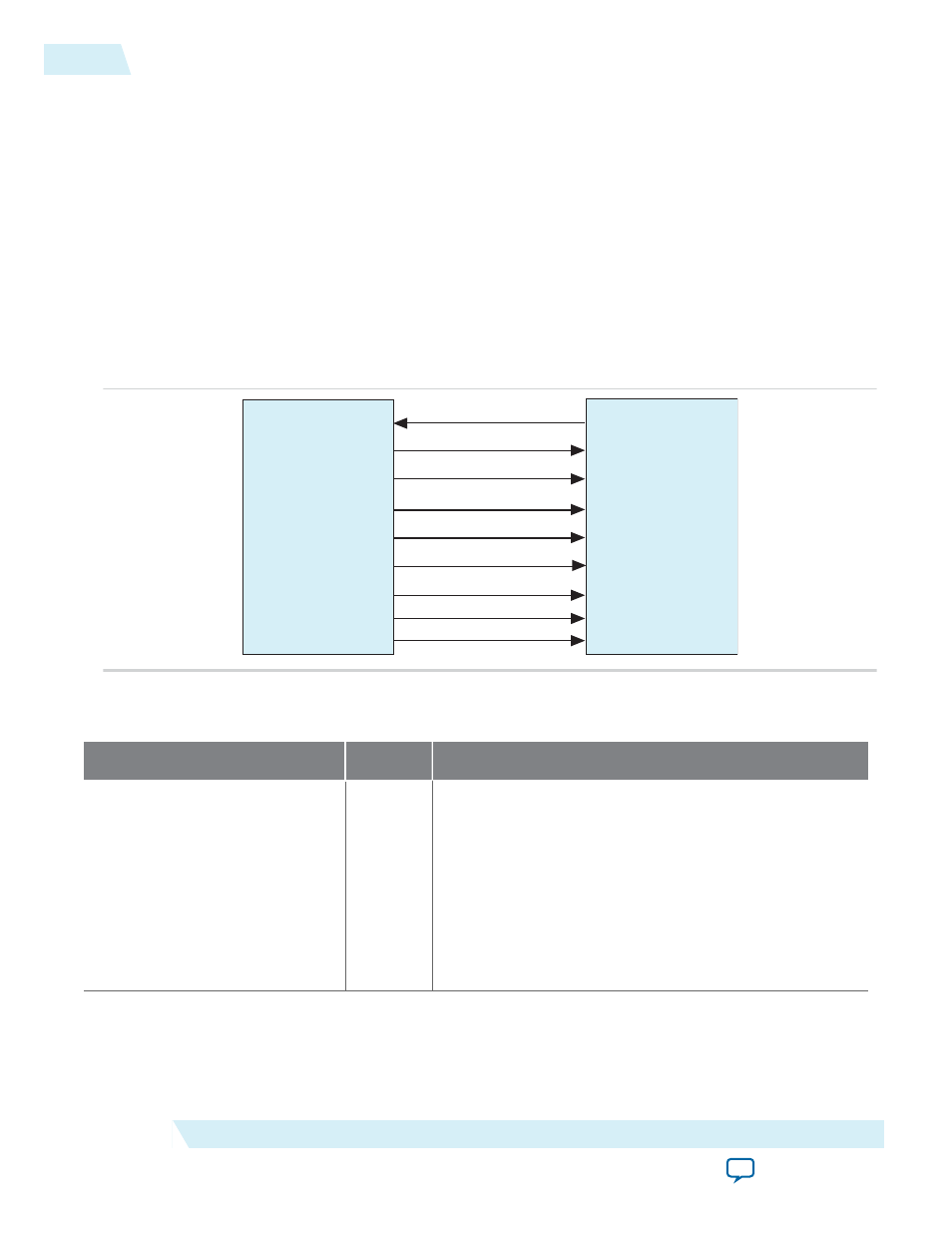Altera Hybrid Memory Cube Controller User Manual
Page 39

cycles. In half-width variations, the maximum payload size limits the interface to data bursts of 4 or fewer
core_clk
clock cycles. Write requests and read responses with a payload size that is not a multiple of the
bus size carry the end of the payload in the lower order bits of the data bus in the final clock cycle.
The application must provide the following routing and control information for every request it sends on
the TX data path interface:
• A well-formed HMC destination address.
• A unique 9-bit in-flight tag. This requirement does not apply to posted transaction requests. The
application can reuse a tag only after the previous transaction with that tag is completely resolved.
• A correct 3-bit cube ID.
In addition, the application must ensure that it sends a request only when it is able to receive the response
to the request as soon as that response arrives.
Figure 4-1: Application to HMC Controller IP Core
The client acts as a source and the HMC Controller acts as a sink in the transmit direction.
dp_req_ready
dp_req_valid
dp_req_tag[8:0]
dp_req_cmd[5:0]
dp_req_cube[2:0]
dp_req_addr[33:0]
dp_req_data[255:0] or [511:0]
dp_req_sop
dp_req_eop
HMC Controller
IP Core
TX Client
Logic
Table 4-1: Signals of the Data Path Request Interface
All interface signals are synchronous with the
core_clk
clock.
Signal Name
Direction
Description
dp_req_ready
Output
When the HMC Controller IP core asserts this signal, the
IP core is ready to receive data. The HMC Controller IP
core accepts data when both
dp_req_ready
and
dp_req_
valid
are asserted in the same cycle.
The IP core deasserts this signal to back-pressure the
application when it cannot currently process any
incoming requests.
The IP core does not deassert this signal between the
cycles of a multi-cycle write data transfer.
4-2
Application Request Interface
UG-01152
2015.05.04
Altera Corporation
HMC Controller IP Core Signals
